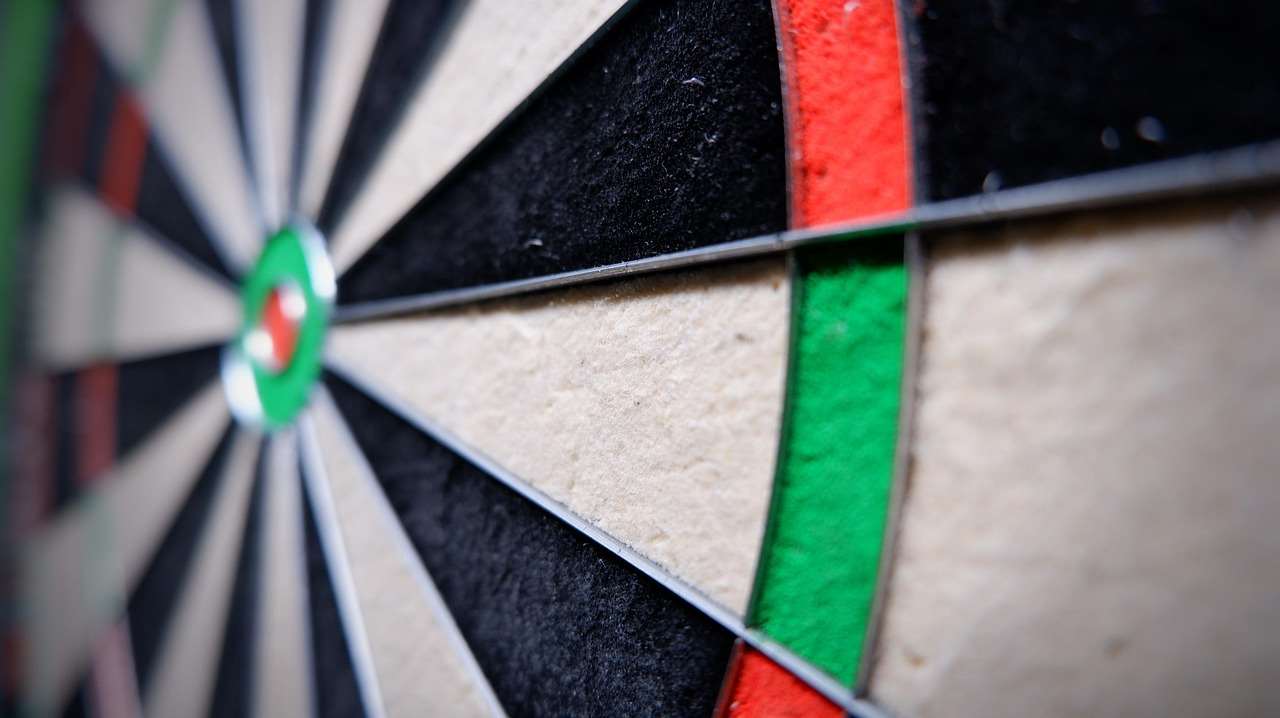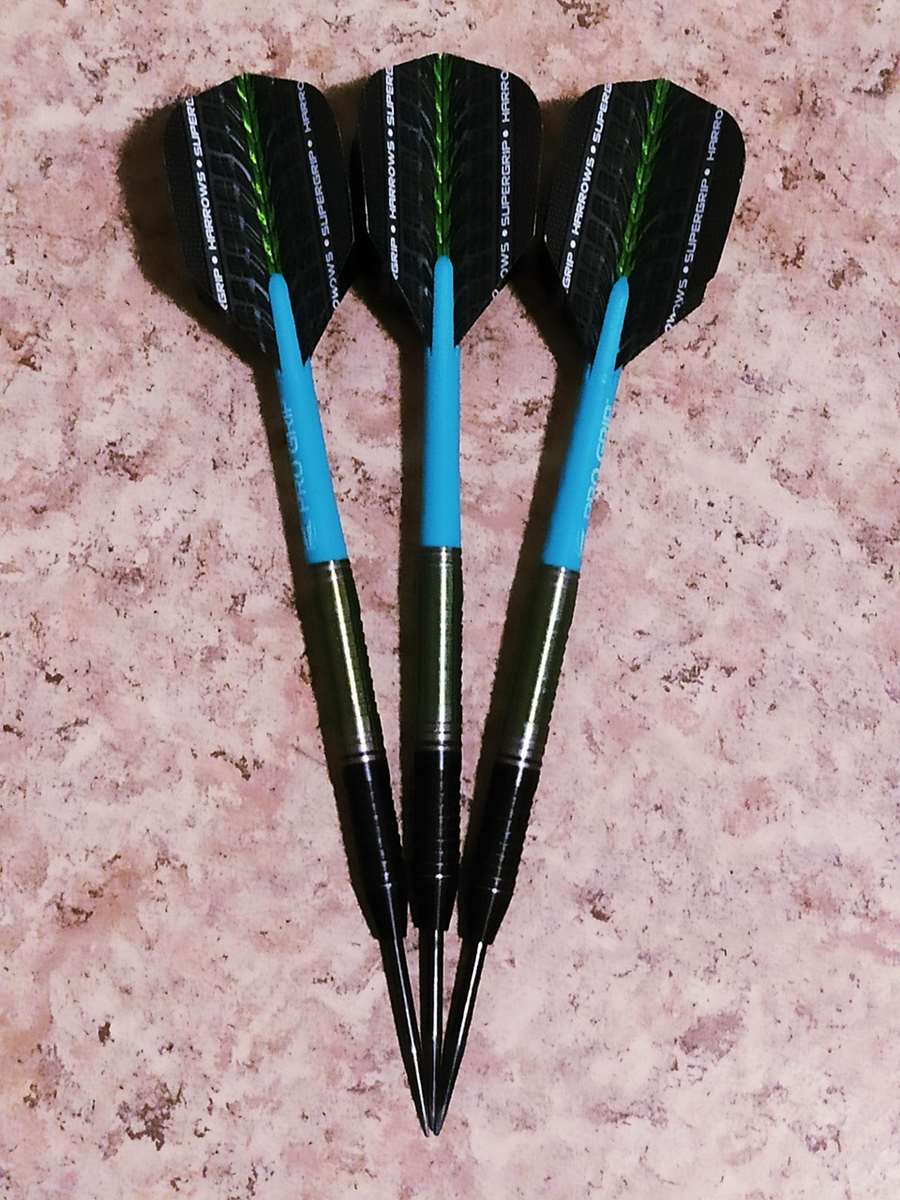The starting score in darts is always 501. This article will explain this key aspect of the darts score to start, detailing different game variations, common mistakes, and tips to improve your game. We’ll also cover essential information for beginners and experienced players alike.
⚠️ Still Using Pen & Paper (or a Chalkboard)?! ⚠️
Step into the future! The Dart Counter App handles all the scoring, suggests checkouts, and tracks your stats automatically. It's easier than you think!
Try the Smart Dart Counter App FREE!Ready for an upgrade? Click above!
Understanding the darts score to start is fundamental to playing the game effectively. It’s the foundation upon which all scoring and game strategies are built. Many variations exist, and knowing the nuances helps make you a better player. This information, combined with our advice on strategy and common mistakes, will help you enhance your darts game.
Understanding the Standard Darts Score to Start: 501
In the most common game of 501, the darts score to start is, as mentioned, 501. Players must reduce this score to zero, throwing three darts per turn. The crucial element is that the final dart must land in the double or bullseye (double 25) to achieve a checkout. Getting to zero with a single dart in the non-double is not winning. This simple rule significantly impacts the game’s strategy and complexity. You need to plan your scoring meticulously and consider the darts score to start to strategize your moves effectively. The objective isn’t just hitting high scores but also selecting scores that aid in making a smooth and strategic finish.

Many newer players might underestimate the planning needed. Understanding the darts score to start and strategizing for a clean finish is paramount to success. Many resources are available to assist players, from darts scores app to printed score sheets. We’ll further discuss strategic checkout approaches later.
Variations in Starting Scores and Game Types
Cricket
Cricket, another popular darts game, doesn’t have a numerical darts score to start in the same way. Instead, players aim to “close” all numbers from 15 to 20, and the bullseye, while simultaneously scoring points in those numbers against their opponent. The player who closes all their numbers and has the highest score beyond that point wins. This is a vastly different style of game and shows that not every game uses a specific darts score to start.

Around the Clock
In “Around the Clock,” players must hit each number in ascending order, starting with 1, then 2, 3, and so on, until they reach 20 and finally the bullseye. There’s no set darts score to start here; the focus is on hitting specific numbers in sequence. This game demands precision and a different skill set from 501.
301, 401, and Other Variations
Similar to the 501 game, many variations exist, such as 301 and 401. These games maintain the same fundamental principle: reducing the initial darts score to start (301 or 401 respectively) to zero with the last dart hitting a double or the bullseye. Mastering the strategies for one game translates well to others, and understanding the fundamental concept of the darts score to start is invaluable.
Choosing the right game can enhance your enjoyment; beginners might find starting with a lower darts score to start, like 301, less intimidating than immediately tackling the standard 501.
Strategies for Reducing the Darts Score to Start
Successfully reducing your darts score to start requires a blend of skill and strategy. Aiming for high scores is important, but calculating your finishing possibilities is critical. Consider these points:
- Checkout Strategies: Learn common and efficient checkouts. A darts scores app can be invaluable for practicing and learning these.
- Risk Assessment: Don’t be afraid to take calculated risks, but avoid overly risky throws when a safe score is available. A consistent approach will get you closer to zero faster than chasing unrealistic scores every turn.
- Practice: Regular practice is vital for improving your accuracy and consistency. Consistent scoring leads to better control over your game, and efficient control of the darts score to start.
A comprehensive understanding of the darts score to start and the strategic considerations throughout the game is crucial. The number itself is just the beginning.

Common Mistakes to Avoid
Many beginners make these common mistakes which can make winning difficult:
- Ignoring Checkouts: Failing to plan for checkouts can lead to frustration and wasted turns. Consider the finishing number throughout the game.
- Inconsistent Throwing: Lack of consistency negatively impacts overall performance and makes reaching zero more difficult.
- Overly Risky Throws: While calculated risks can sometimes pay off, going for overly ambitious throws when a safe score is possible is a poor strategy.
- Neglecting Practice: Consistent practice is key to improving your accuracy and consistency, and mastering your approach to the darts score to start.
Avoiding these pitfalls will significantly improve your game and lead to more successful matches. Understanding the nuances of the darts score to start also aids in avoiding many common traps.
Essential Equipment and Setup
Having the right equipment and setup can make a huge difference in your game. Consider these elements:
- Dartboard: A high-quality dartboard is essential for consistent gameplay. There are many different types available.
- Darts: Choose darts that fit your grip style and throwing technique. It might help to visit a barrel darts cafe to test out different darts.
- Dartboard Surround: A good surround will help to protect your walls and create the proper playing environment. If you have kids around, consider checking out our page on darts kinderen to see how to keep the game safe for them.
- Lighting: Good lighting is crucial for accurate throws.
The darts score to start is only one part of having a good game; ensure you get the essentials right.

Advanced Strategies and Tips
For more experienced players, refining your approach to reducing the darts score to start involves deeper strategic thinking. Consider these elements:
- Mastering Double Outs: Focus on practicing different double outs. The better you are at this, the easier it is to close out the game at the end.
- Advanced Checkout Knowledge: Learn higher-scoring checkouts. Having this knowledge will allow you to strategically navigate the final stages of the game.
- Opponent Analysis: Pay close attention to your opponent’s strategies. Understanding their strengths and weaknesses can help you adapt your own gameplay.
To improve your game further, it is important to understand the standard darts score to start but also your ability to win against your opponent.
Where to Play and Learn More
There are numerous resources available to enhance your darts game:
- Local Darts Leagues: Join a local league to test your skills against other players.
- Online Communities: Connect with other darts enthusiasts online to share tips and strategies.
- Darts Tutorials: Many online tutorials provide instruction on various aspects of darts. The darts scores app can help you to practice your scoring.
- Practice: The best way to improve is through consistent practice.
Understanding the darts score to start is essential, but it’s only one piece of the puzzle. Consider these additional resources to hone your abilities. You might even be interested in the darts game measurements for setting up your board.

Conclusion
The darts score to start, typically 501, is a fundamental aspect of the game. Mastering strategies to reduce this score efficiently, understanding game variations, and avoiding common mistakes are all crucial for success. By combining a solid understanding of the darts score to start with consistent practice and strategic thinking, you can significantly improve your darts game. Remember to utilize the available resources, including online communities and tutorials, and practice regularly. Darts scoreboard app can be a great asset in tracking your score and progress.
Start practicing today, and soon, you’ll be mastering your way to victory! Check out our article on dart set keyword for the best equipment to support your game!
Hi, I’m Dieter, and I created Dartcounter (Dartcounterapp.com). My motivation wasn’t being a darts expert – quite the opposite! When I first started playing, I loved the game but found keeping accurate scores and tracking stats difficult and distracting.
I figured I couldn’t be the only one struggling with this. So, I decided to build a solution: an easy-to-use application that everyone, no matter their experience level, could use to manage scoring effortlessly.
My goal for Dartcounter was simple: let the app handle the numbers – the scoring, the averages, the stats, even checkout suggestions – so players could focus purely on their throw and enjoying the game. It began as a way to solve my own beginner’s problem, and I’m thrilled it has grown into a helpful tool for the wider darts community.